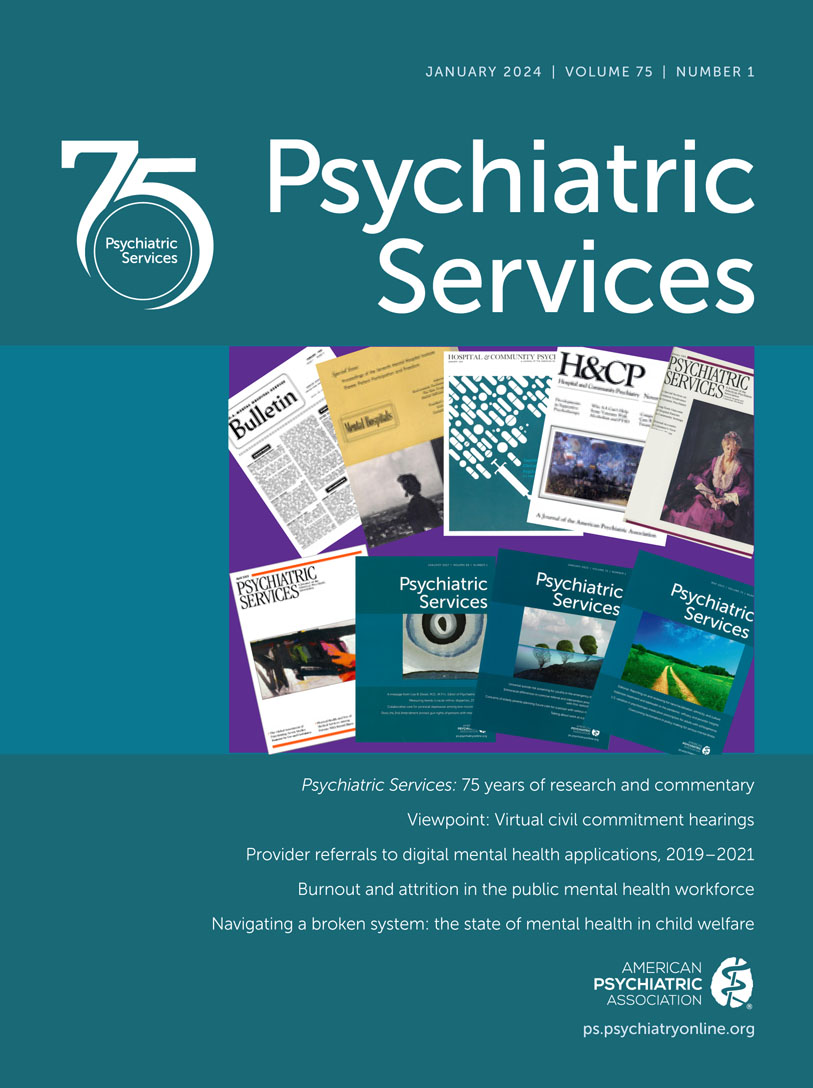Veteran Cultural Competence Training: Initial Effectiveness and National-Level Implementation
Abstract
Objective:
Because service professionals often lack cultural competence in working with veterans, veterans often perceive such professionals as “not understanding.” The authors developed, evaluated, and implemented Veteran Cultural Competence Training (VCCT), combining educational and experiential components in an in-person training focused on building awareness, knowledge, and skills to better work with veterans.
Methods:
Study 1 was a type 1 effectiveness-implementation hybrid trial examining VCCT effectiveness in a sample of social service professionals (N=41) compared with a matched comparison group (N=41) via the Multicultural Counseling Self-Efficacy Scale–Veteran Form (MCSE-V) instrument. In study 2, the authors used the reach, effectiveness, adoption, implementation, and maintenance (RE-AIM) framework to conduct a type 2 effectiveness-implementation hybrid trial and implemented VCCT with an expanded population (N=312) during eight training sessions in three U.S. states.
Results:
Results from study 1 indicated that VCCT significantly increased self-efficacy of trainees in veteran cultural competence compared with the matched group (p<0.001). In study 2, the RE-AIM framework highlighted the importance of building coalitions and utilizing implementation facilitation to maintain fidelity. The within-group effectiveness of VCCT was statistically significant and maintained across settings and professions (p<0.001), and trainees were satisfied with VCCT. Maintenance analysis revealed expansion of VCCT after implementation in terms of the number of training sessions (N=9), regions hosting the training (N=5), staff hired (N=13), and trainee applications (N=1,018).
Conclusions:
VCCT effectively increases self-efficacy in veteran cultural competence. Gains appeared across different professions, demographic characteristics, and locations. Participation in VCCT may increase professionals’ competence in understanding veteran culture, thereby potentially improving veteran services.
Access content
To read the fulltext, please use one of the options below to sign in or purchase access.- Personal login
- Institutional Login
- Sign in via OpenAthens
- Register for access
-
Please login/register if you wish to pair your device and check access availability.
Not a subscriber?
PsychiatryOnline subscription options offer access to the DSM-5 library, books, journals, CME, and patient resources. This all-in-one virtual library provides psychiatrists and mental health professionals with key resources for diagnosis, treatment, research, and professional development.
Need more help? PsychiatryOnline Customer Service may be reached by emailing [email protected] or by calling 800-368-5777 (in the U.S.) or 703-907-7322 (outside the U.S.).



